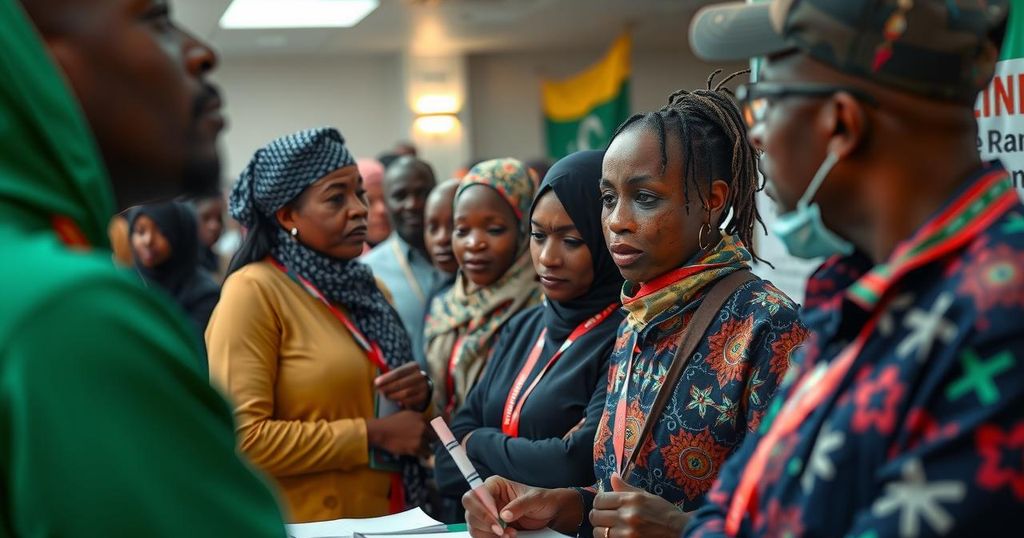Senegal held parliamentary elections on Sunday to assess President Faye’s capacity to implement his proposed reforms. With over 7 million voters selecting 165 lawmakers, he needs a majority to foster legislative support for his anti-corruption agenda. These elections follow a volatile campaign littered with violence and underscore the frustrations of a young electorate; as final results are anticipated, the implications for Senegal’s democratic framework are significant.
On Sunday, Senegal conducted a parliamentary election essential for determining the feasibility of President Bassirou Diomaye Faye’s planned reforms. These reforms, primarily aimed at combating corruption and redistributing natural resource revenues to benefit the populace, have faced significant obstacles due to his party’s lack of a parliamentary majority. With over 7 million registered voters choosing 165 lawmakers, the stakes are high as these elections will influence the legislative capacity to facilitate Faye’s agenda. Since assuming the presidency in March with a 54% electoral victory, Faye has highlighted the challenges posed by a fragmented parliament dominated by opposition parties, including the Takku Wallu coalition led by former President Macky Sall. The unrest leading up to the elections, characterized by violent clashes between party supporters, underscores the volatile political landscape. Faye’s political party, PASTEF, must secure at least 83 seats to gain a majority in the National Assembly. Analysts express optimism about their potential success given the recent popularity explosion following Faye’s electoral win and the youth’s demand for substantial change. Senegal, renowned for its stability in a tumultuous region, faces pressing issues such as high inflation and rampant youth unemployment, with over 60% of the population under 25 years of age. Irregular migration, partly driven by economic hardship, has increased as countless young Senegalese risk perilous journeys across the sea in search of better opportunities. Incidents of violence during the campaign have led to heightened tensions, illustrating deep-seated political strife. As reports of attacks against PASTEF supporters surface, leaders have called for pacific resolutions amid demands for justice for injured partisans. The aftermath of the elections will be pivotal not only for Faye’s governance but for reaffirming Senegal’s commitment to democratic principles in a region grappling with political instability. With provisional results expected soon, the international community watches closely, acknowledging the broader implications of this election on West African democracy.
The parliamentary elections in Senegal serve as a significant indicator of the political climate following President Bassirou Diomaye Faye’s recent electoral victory in March. His administration is characterized by a promise of reforms aimed at addressing systemic corruption and ensuring that the wealth from the country’s natural resources benefits its citizens. The context surrounding these elections is marked by the dissolution of a previously opposition-led parliament, creating an environment rife with political tension. Faye’s rise to power has been propelled by a youthful electorate discontented with existing conditions, such as inflation and unemployment, prevalent in a country where a sizable proportion of citizens are under 25. Historical factors also contribute to the scrutiny of Senegal’s stability as a democracy, especially given regional trends of coups and political unrest in West Africa.
The ongoing parliamentary elections in Senegal are crucial not only for President Faye’s reform agenda but also for the nation’s democratic integrity. With a backdrop of youth discontent and recent electoral violence, the outcome will have far-reaching implications for governance and stability in the region. As Senegalese citizens navigate economic challenges, the results may redefine the future landscape of political engagement and accountability in the country.
Original Source: apnews.com






